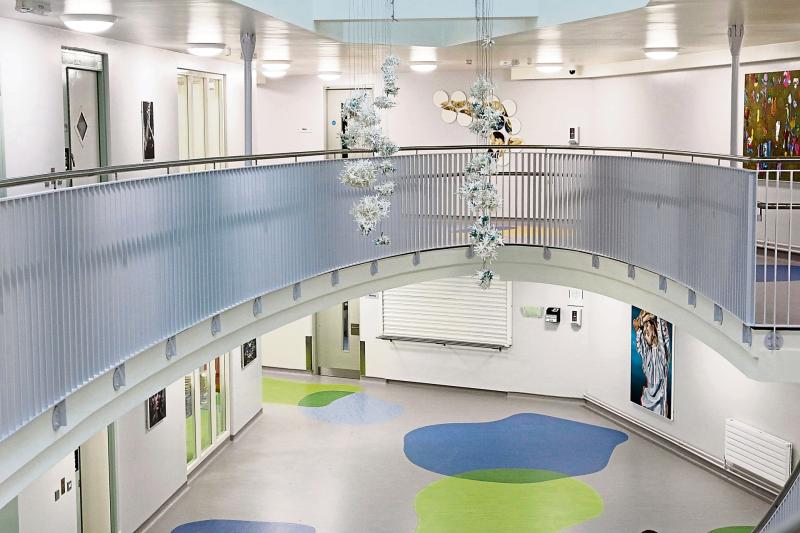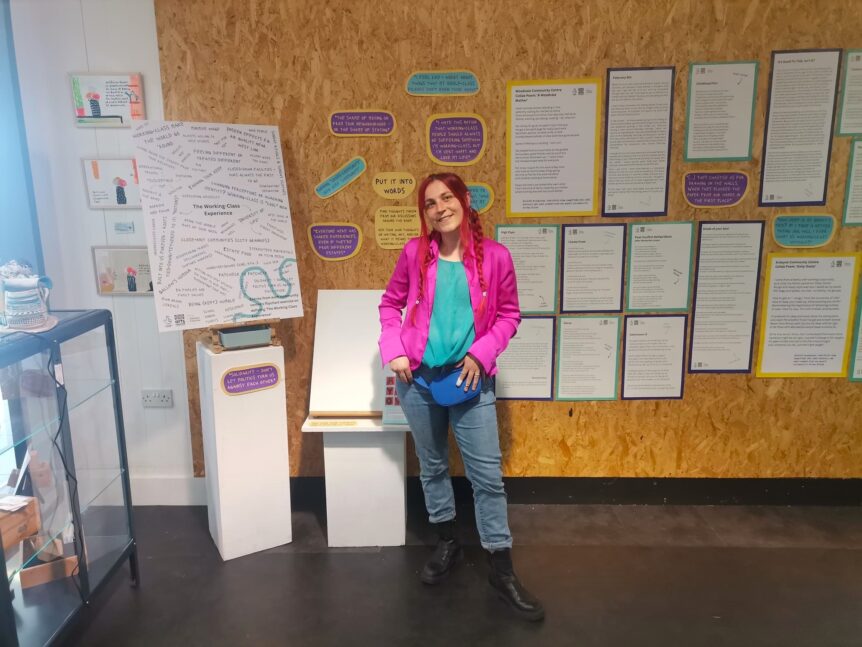How did this project come about?
The project was conceived in Limerick. I was studying there, working on a Creative Writing Master’s, and I was running creative writing workshops in Limerick Prison at the same time. So although the project is being facilitated in Belfast, it was developed in Limerick. The female inmates had expressed curiosity in creative writing, but initially there were quite a few anxieties around writing. They thought that it wasn’t something they could do, that writing was pretentious, something maybe middle class people did, not people from a working class background. The funny thing is that a couple of inmates were big readers, particularly of working-class memoirs written in prison, but the idea that creative writing wasn’t personally for them still existed.
Some of the inmates thought that writing had to be done in a particular way, that their words had to be put forward in a particular style, and their writing had to fit specific constraints to be considered good. Once we dispelled those myths, they really came along in terms of their participation and started to enjoy it.

How does the project develop from those initial thoughts and the prison experiences?
I was only in Limerick for a short period of time, and so I took the things I had learned from my work in Limerick Prison and brought it back here. The fact that people continued coming to the prison workshops showed a drive and interest for working class writing, and I wanted to bring the same to neighbourhoods in Belfast in the hope of reaching people who might enjoy writing but didn’t feel it was available for them. I decided to start the project ‘Writing in the Real World’, so I applied for funding from the Arts Council which I received and that meant that the project could go full steam ahead.
And what were the key goals of the project?
The key goals were to reduce the stigma associated with creative writing specifically and bring communities together to share stories.
The fact is that writing doesn’t have to look a certain way, it doesn’t have to conform to particular frameworks, in order for people to be able to tell their stories. It can be very easy to judge people’s writing before it appears but we had to stress that people from working class backgrounds have to able to tell their story without having to look at the best seller lists or what is being approved in academic circles.
We think everyone has a unique voice and everyone can write a story, their story, but they have to know that it is something they have every right to do, so building self-belief and confidence was a priority in the workshops.
With this project, we have had people who have never written creatively before, that this is actually their first time writing and showing people their work. At the end of the project, one person told us they’d had family and friends who never considered going into an “arts place,” let alone read poetry, get in touch to say how much they enjoyed seeing the exhibition and reading everyone’s works. It’s a good example of why encouraging people to come along and get involved in writing is important.

Why do you think people think writing is pretentious?
I’m not sure but I think it’s a mix of things. It could be that the more literary genres, often very ornate and philosophical, put people off. Of course it’s not the only way to write so we wanted to expose people to different styles.
Then there is the problem of time. Discussion was a big part of this project and one of our workshoppers said they stopped writing fairly young because their father said he “didn’t have time for that nonsense.” People also said that not doing well in school put them off.
Labour intensive jobs, looking after families, facing a perceived lack of education because of leaving school early to work; these were obstacles discussed by our groups. People may also enjoy reading but not know anyone in their circle who writes. I suppose experiences like these add to the idea that creative writing is pretentious and only done by the few.
There are plenty of working class writers today who are doing well and would serve as a good example that writers from that background can get a hearing?
Yes that’s true and we did look at writers from a working class background as part of the project in order to show people that these works or poems existed. There’s also a number of funding streams open to specifically working class writers, but when we asked people, apart from the things I have already mentioned, quite a few people did think that writing sits on top of a cloud, that they feel marginalised from that mode of expression.
Workshop conversations have been great but we’re still only scratching the surface. Certainly. as we go along with the project, we aim to explore even further that side of things, the reasons which inhibit people from a working class background writing from their own perspective.

To see more information about the Writing in the Real World project go to the links below
